|
|
|
Sort Order |
|
|
|
Items / Page
|
|
|
|
|
|
|
| Srl | Item |
| 1 |
ID:
063761
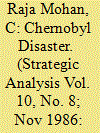

|
|
|
| 2 |
ID:
126086
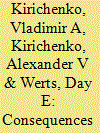

|
|
|
|
|
| Publication |
2012.
|
| Summary/Abstract |
Despite the tragic accidents in Fukushima and Chernobyl, the nuclear power industry will continue to contribute to the production of electric energy worldwide until there are efficient and sustainable alternative sources of energy. The Chernobyl nuclear accident, which occurred 26 years ago in the former Soviet Union, released an immense amount of radioactivity over vast territories of Belarus, Ukraine, and the Russian Federation, extending into northern Europe, and became the most severe accident in the history of the nuclear industry. This disaster was a result of numerous factors including inadequate nuclear power plant design, human errors, and violation of safety measures. The lessons learned from nuclear accidents will continue to strengthen the safety design of new reactor installations, but with more than 400 active nuclear power stations worldwide and 104 reactors in the Unites States, it is essential to reassess fundamental issues related to the Chernobyl experience as it continues to evolve. This article summarizes early and late events of the incident, the impact on thyroid health, and attempts to reduce agricultural radioactive contamination.
|
|
|
|
|
|
|
|
|
|
|
|
|
|
|
|
| 3 |
ID:
063781
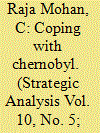

|
|
|
| 4 |
ID:
124094
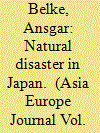

|
|
|
|
|
| Publication |
2013.
|
| Summary/Abstract |
This contribution focuses on the consequences of the natural disaster in Japan for the world financial markets as seen around half a year after the nuclear accident happened. It, thus, focuses on expectations about what would happen in macroeconomics terms later on. For this purpose, it examines how deep the slump in growth was, to what extent Japanese suppliers are integrated into international production chains, and how much the world economy would, thus, be affected. Moreover, it assesses what the economic implications of a forced withdrawal from nuclear energy as a reaction to the disaster would have been. Finally, it elaborates on the consequences of the natural disaster in Japan for the world financial markets and for the development of national debt.
|
|
|
|
|
|
|
|
|
|
|
|
|
|
|
|
| 5 |
ID:
063768
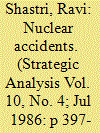

|
|
|
| 6 |
ID:
128323
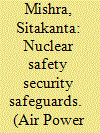

|
|
|
|
|
| Publication |
2013.
|
| Summary/Abstract |
Since its inception, nuclear technology has evoked a sense of zeal as well as awe because of its immense constructive and destructive potential. By now, the world has come a long way, experiencing both: around 540 nuclear reactors operating in countries producing 372,000 MWe (13.5 percent of the world`s electricity), radioactive materials used in many sectors enriching human life; on the other hand, two nuclear bomb have been used in war and around 19,000 more are stockpiled; during the same time, three major nuclear accidents occurred, resulting in some human suffering, and misuse of nuclear material by non-states actors is widely apprehended. Therefore, the balance sheet may be argued to be mixed, implying that we succeeded as much we failed with nuclear technology. After the Fukushima nuclear disaster, what would be the fate of nuclear technology or which direction the nuclear energy discourse will move in has been a matter of speculation. This study, premised on the assumption that nuclear technology or nuclear energy cannot be ignored as it has an edge over other for a better management paradigm by looking beyond the design basis threats to address inherent loopholes. Deconstructing the real and assumed threats (accident, misuse, and terror), this study prescribes a coherent and integrated strategy devoid of political and social panic.
|
|
|
|
|
|
|
|
|
|
|
|
|
|
|
|
| 7 |
ID:
004942
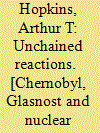

|
|
|
|
|
| Publication |
Washington, D C, NDU Press, 1993.
|
| Description |
xviii,153p.
|
| Standard Number |
0160359708
|
|
|
|
|
|
|
|
|
|
|
|
Copies: C:1/I:0,R:0,Q:0
Circulation
| Accession# | Call# | Current Location | Status | Policy | Location |
| 035977 | 355.033547/HOP 035977 | Main | On Shelf | General | |
|
|
|
|
|
|
|
|
|